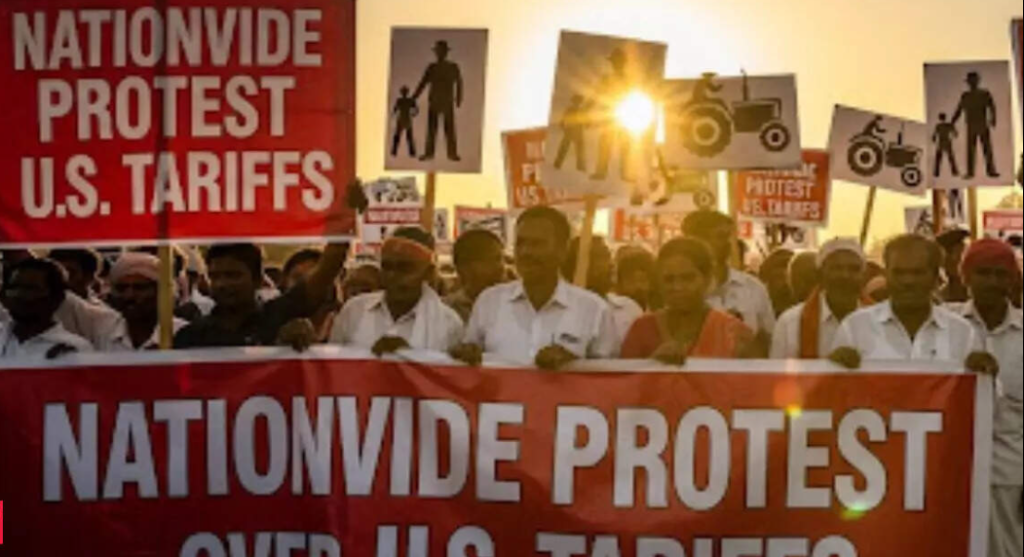
In a bold move against U.S. economic pressure, Indian trade unions and farmers’ organizations have announced a nationwide protest for August 13. Their target: U.S. President Donald Trump’s proposed 25% tariffs on Indian goods and punitive taxes on India’s oil trade with Russia.
The protest is being organized by the Central Trade Unions-Samyukt Kisan Morcha (CTUs-SKM), a powerful alliance representing ten central trade unions and India’s leading farmers’ coalition. In a joint statement, they described the U.S. measures as “blatant economic coercion” and an unacceptable attempt to dictate India’s sovereign trade decisions.
The protest will include tractor rallies, motorcycle processions, mass demonstrations, and public gatherings across cities and rural areas alike. Organizers are urging farmers, workers, students, and ordinary citizens to join what they are calling a “nationwide day of resistance.”
The CTUs-SKM also raised concerns about the recently signed India-UK Comprehensive Economic Trade Agreement (CETA), demanding that it be reviewed and revised. They have called for an immediate halt to all ongoing U.S.-India trade deal negotiations, citing fears of corporate exploitation. The unions are also demanding that any future trade pacts go through parliamentary review and public consultation before being finalized.
Protesters are drawing parallels to India’s colonial past, warning that modern trade agreements risk becoming new tools of economic domination. “The East India Company colonized India through trade,” said a joint statement. “Today, CETA and U.S. trade deals are the new instruments of corporate imperialism.”
The coalition accuses U.S. agribusiness giants like Cargill of attempting to take over India’s agricultural sector. They fear that unrestricted access to India’s dairy and farm markets would devastate small farmers and endanger food security.
Criticism is also being directed at the Indian government for what the unions call its “meek submission” to foreign pressure. They argue that ongoing trade negotiations are threatening the country’s self-reliance and risking job losses, rising unemployment, and further decline of critical public services.
With tensions already high over global trade policies, the August 13 protests are being framed not just as an economic issue, but as a stand for India’s sovereignty in the face of mounting foreign influence.



